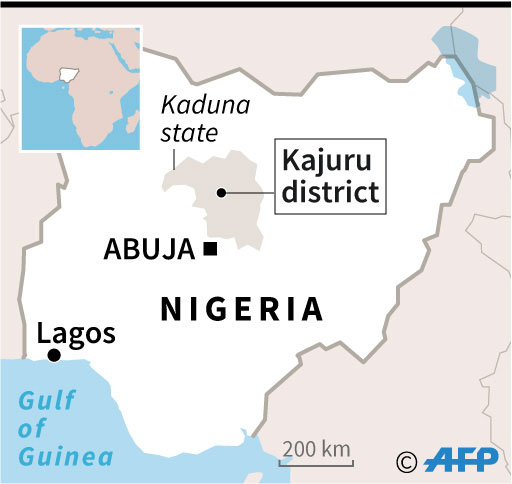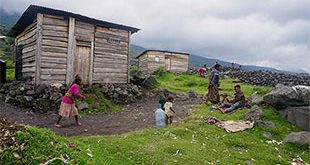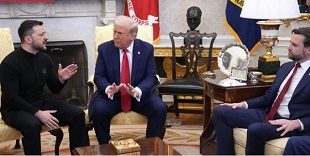
Abuja, Nigeria | AFP | Nigeria’s electoral watchdog on Saturday postponed presidential and parliamentary elections for one week, just hours before polls were due to open.
The two main political parties swiftly condemned the move and accused each other of orchestrating the delay as a way of manipulating the vote.
Voting had been due to start at nearly 120,000 polling stations in Africa’s most populous nation at 0700 GMT, with a record 73 candidates on the ballot.
President Muhammadu Buhari, 76, was set to seek a second term of office against a stiff challenge from the main opposition candidate, former vice president Atiku Abubakar, 72.
But rumours began circulating late on Friday about a possible postponement after widespread reports of problems with the delivery of election materials, including ballot papers.
Members of the Independent National Electoral Commission (INEC) met in emergency session in Abuja and after examining the logistics plans concluded the timetable was “no longer feasible”, commission chairman Mahmood Yakubu said.
“Consequently, the commission has decided to reschedule to Saturday February 23, 2019,” he told reporters.
Parliamentary elections for 360 seats in the lower House of Representatives and 109 seats in the Senate will be held on the same day.
Governorship and state assembly elections will be pushed back to March 9, Yakubu said.
“This was a difficult decision for the commission to take but necessary for the successful delivery of elections and the consolidation of our democracy,” he added.
– Disappointment –
Buhari’s campaign spokesman Festus Keyamo, for the ruling All Progressives Congress, (APC) said the news was a “huge disappointment” and hit out at INEC for being unprepared.
Keyamo called on the body to remain impartial “as the rumour mill is agog with the suggestion that this postponement has been orchestrated in collusion with the… PDP”.
For his part, Abubakar of the main opposition Peoples Democratic Party blamed the Buhari government for “instigating the postponement” but called on his supporters to remain calm.
“We will overcome this. You can postpone an election but you cannot postpone destiny,” he added in a statement.
Nigeria has postponed voting before: in 2015, INEC announced a six-week delay just one week before the election, citing security concerns linked to the Boko Haram insurgency.
The six-week delay was seen as a way for president Goodluck Jonathan to claw back votes after a strong challenge from Buhari, then an opposition candidate.
The same argument may be made again, with little to separate Buhari and Abubakar.
Rescheduling could also prove a headache for voters who travelled to their home states. Whether they are able to do so again — or would want to — will be closely watched.
The main candidates had also returned to cast their ballot — Buhari to the northwest state of Katsina, and Abubakar to Adamawa, in the northeast.
In many areas suffering intermittent electricity supply and poor road infrastructure, thousands of INEC agents had been working into the night to deliver election materials.
In Aba, in the southeast, hundreds of volunteers struggled to determine where they were to be deployed, on the eve of polling.
“I’ve been here 13 hours and I’ve still not seen my name on the lists. Where and how am I going to work tomorrow?” asked one woman.
– Campaign trail –
Saturday’s last-gasp postponement comes after an election campaign in which Buhari had sought to portray himself as a continuity candidate.
He came to power in 2015 on a promise to defeat Boko Haram Islamists, tackle rampant corruption and improve the country’s oil-dependent economy.
But the jihadists still mount attacks and there is widening insecurity elsewhere, while slow growth as the economy limps back from recession has hit Buhari’s stock.
So, too, has the perception he has only targeted political opponents as part of his high-profile anti-corruption campaign, while he has also been accused of authoritarianism.
Buhari’s purported shortcomings have been a feature of Abubakar’s campaign, who has billed himself as a modern, energetic and pro-business leader.
The language of the campaign has reminded voters of the president’s former life as an army general who headed a military government in the 1980s.
Abubakar’s past has also featured prominently, as the ruling party resurrected controversies from his time as vice president and alleged links to corruption.
The election — the sixth in the 20 years since civilian rule was restored — is likely to be one of the last times men of Buhari and Abubakar’s generation will feature so prominently.
They have been fixtures on Nigeria’s turbulent political scene for decades and are the oldest on the ballot.
Just over half of the 84 million registered voters are aged 18-35, prompting calls for more representative candidates unburdened by involvement in Nigeria’s traumatic past.
 The Independent Uganda: You get the Truth we Pay the Price
The Independent Uganda: You get the Truth we Pay the Price


